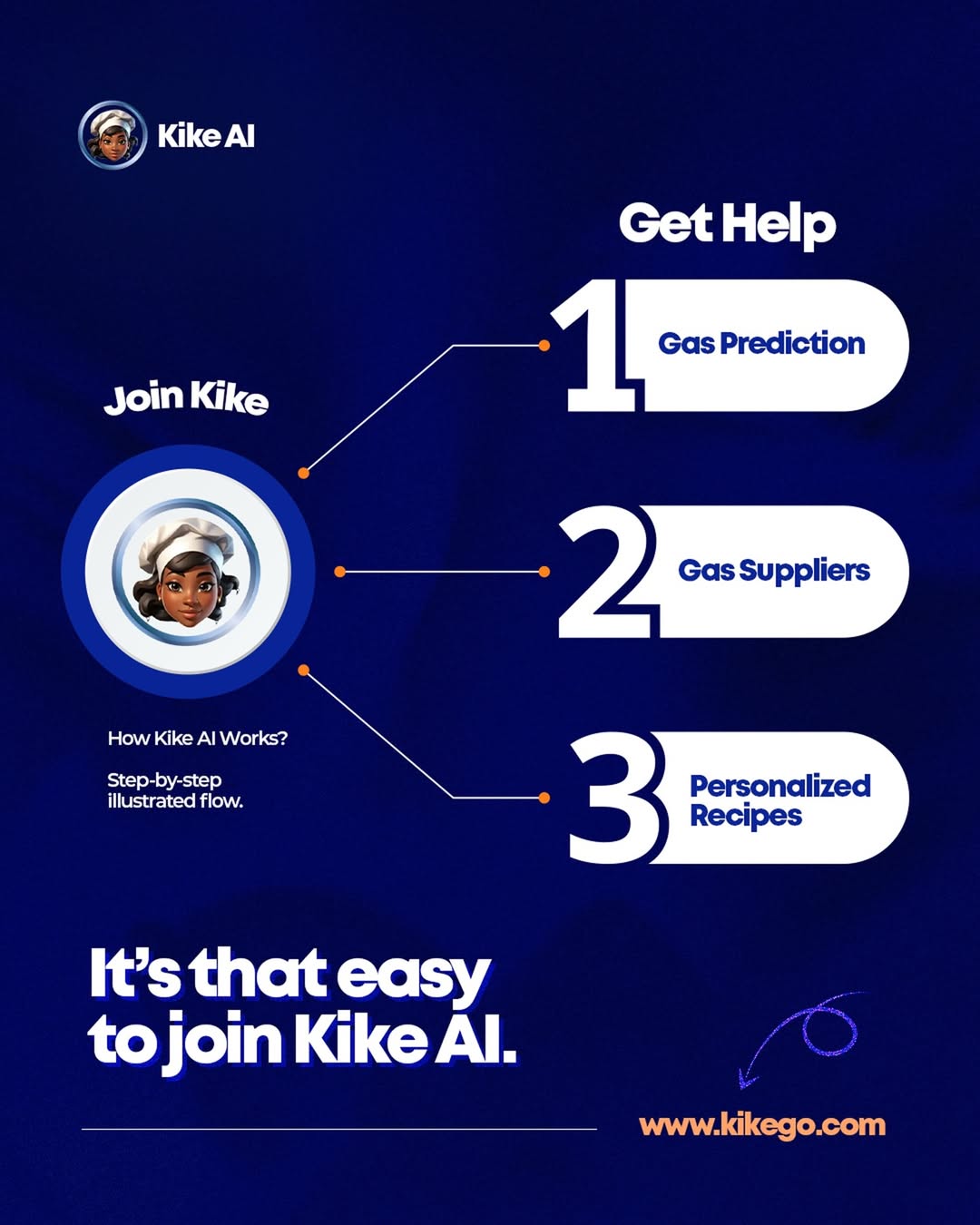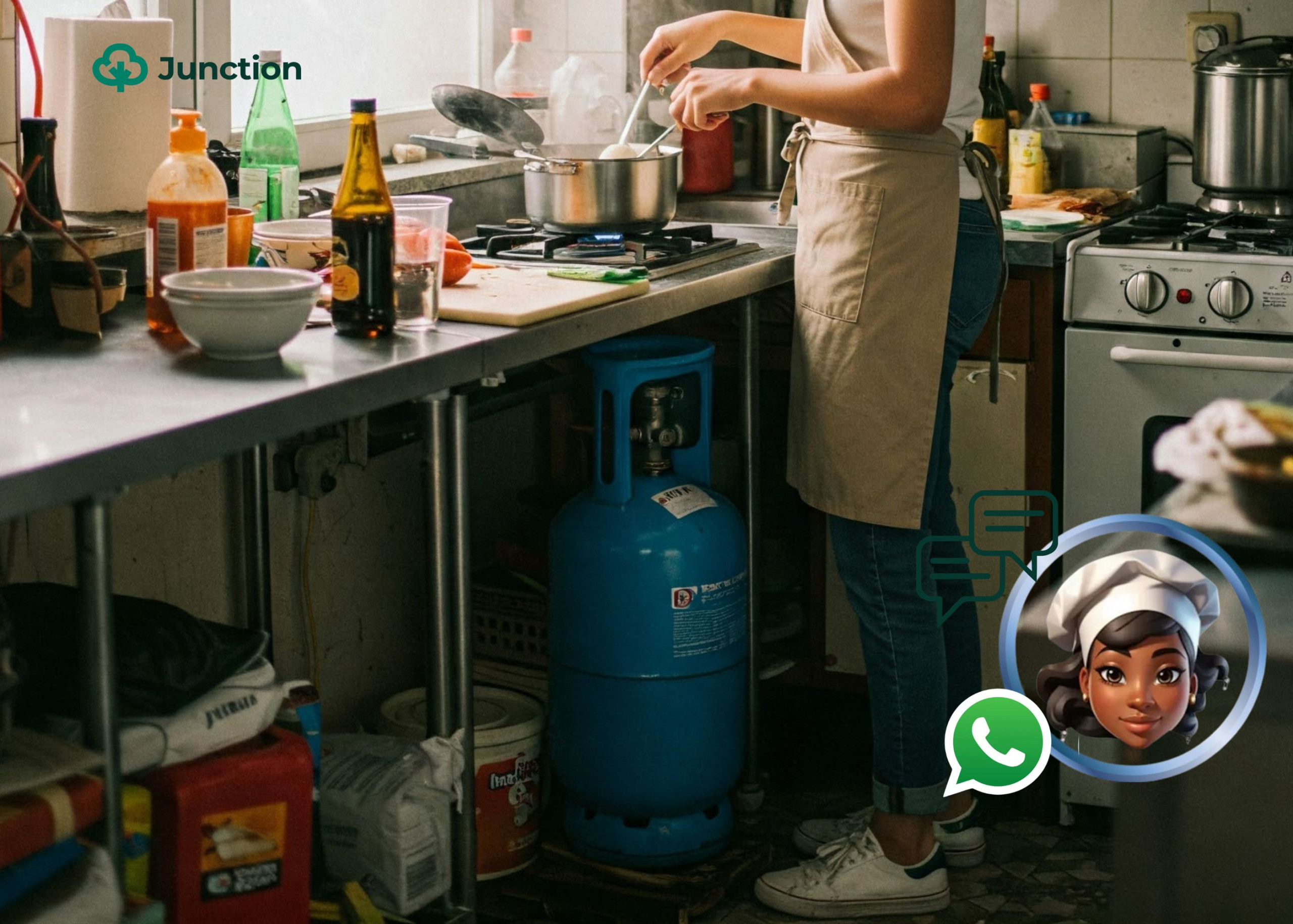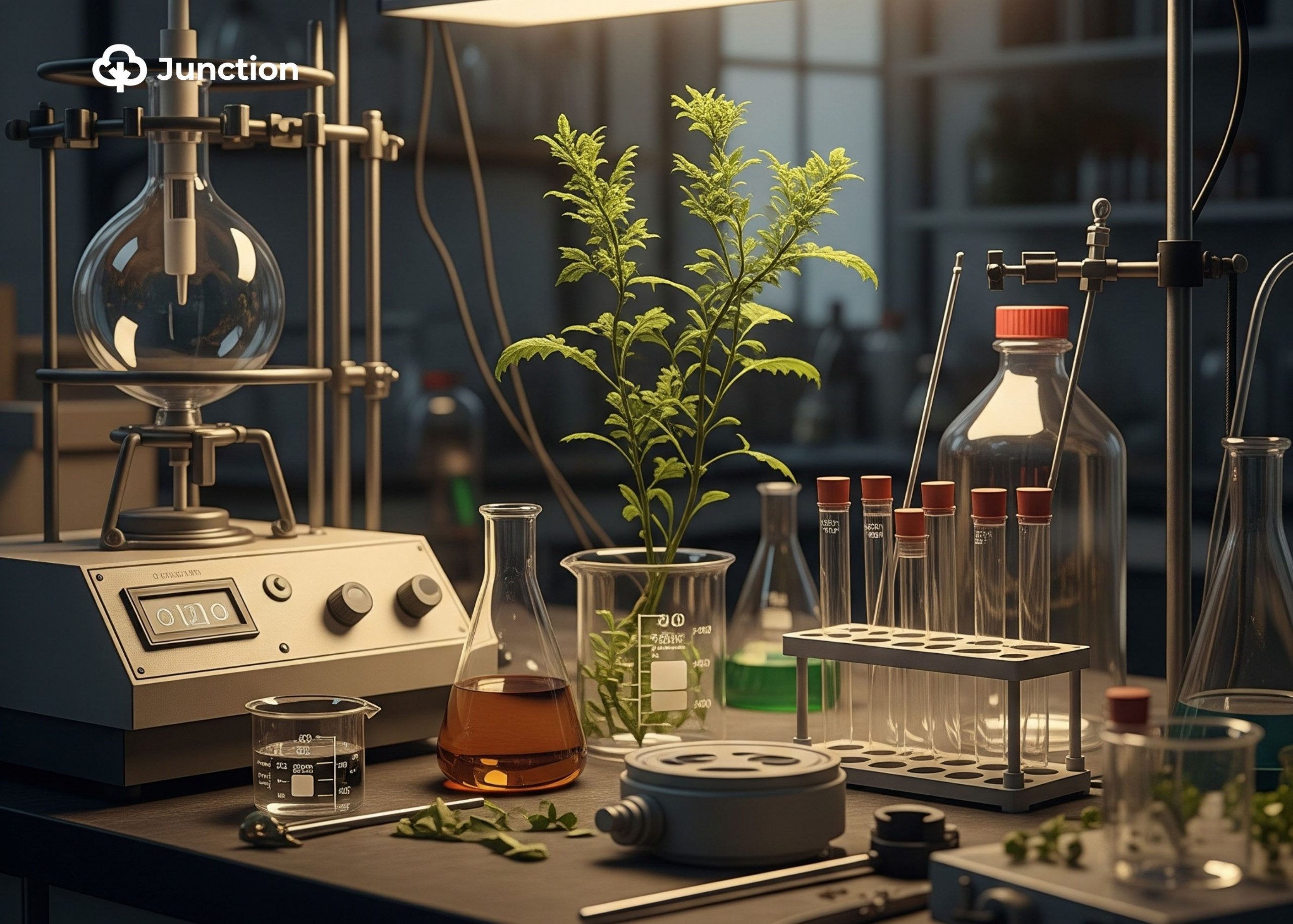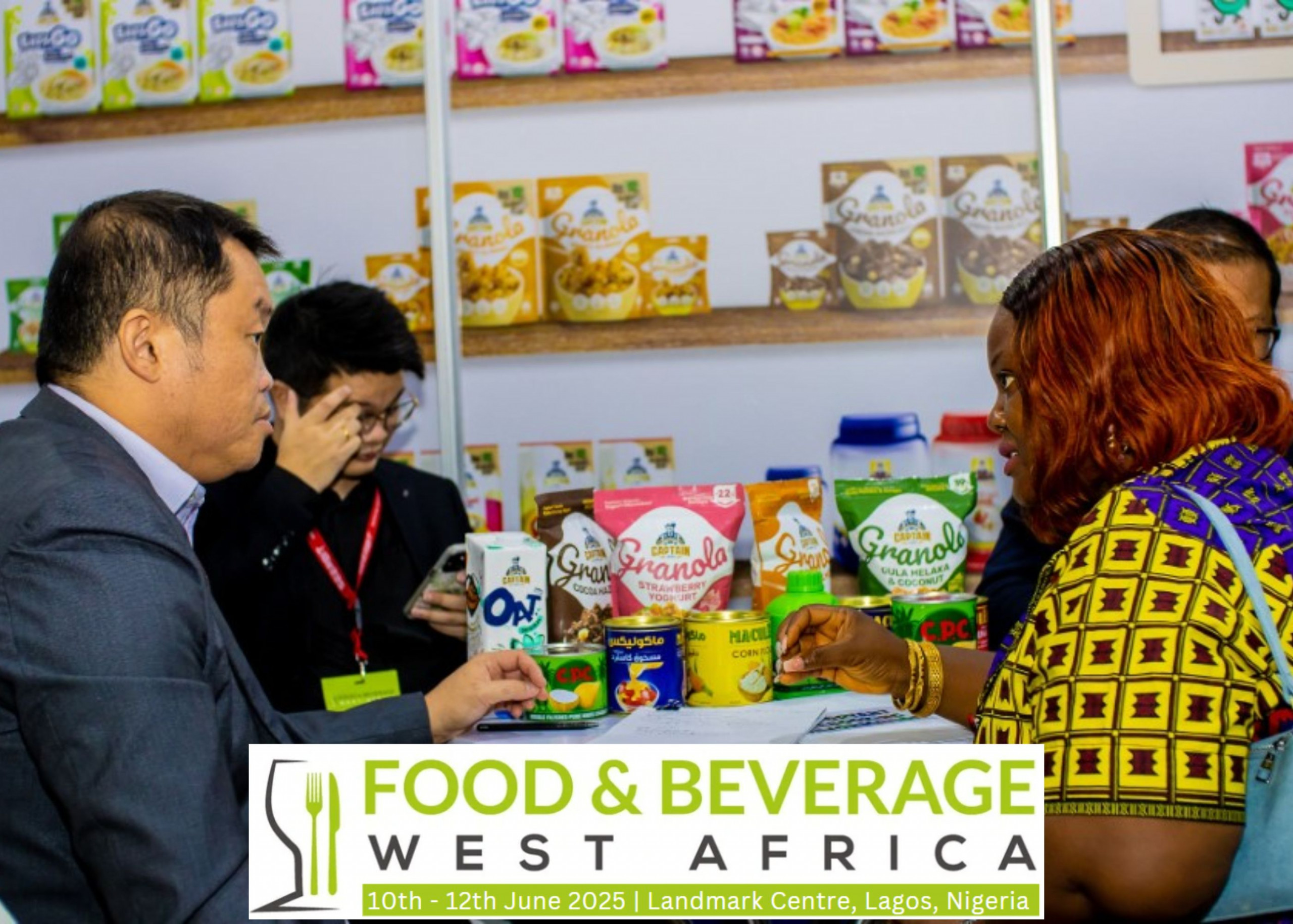Food waste accounts for a significant percentage of the solid waste problem in Nigeria. Aside from the plastic waste menace, post-harvest and household food waste is the next big issue in the country.
Household food waste is when edible food items intended for consumption are discarded for various reasons, such as spoilage, overpurchasing, or simply not being consumed after being cooked. It includes any food that enters the food supply chain and is ultimately discarded rather than eaten. This is mostly influenced by household income, presence of children, type of employment, and awareness of food waste’s environmental impact.
This is not a simple problem in Nigeria, a country that is currently battling serious levels of food insecurity, malnutrition and poverty.
However, an Artificial intelligence-powered tool called Kike AI is working to help people manage this problem. It’s smart technology recommends ways to manage resources more efficiently and build a smarter, more sustainable food economy.
Nigeria’s food waste problem
According to the World Bank, Nigeria generates at least 32 million tonnes of solid waste annually, which is more than half of the total solid waste generated in Sub-Saharan Africa. Without adequate measures, this may increase to 107 million tonnes by 2050.
A deep dive into the food waste problem in Nigeria paints a dire situation that needs urgent action. Despite the current food insecurity in the country, 40% of food produced in Nigeria, which is approximately 100 million tonnes and able to feed 40 million people, is lost or wasted annually.
The impact of this waste problem extends beyond the national level of adverse economic and climate effects, but also down to the household level, affecting the overall supply of food. On average, Nigerian households waste food valued at approximately ₦1,500 per month, a non-trivial proportion of middle-income households’ disposable income.
Food waste also exacerbates hunger and undernutrition, particularly among vulnerable groups such as women and children, who are more likely to be affected by rising food prices and scarcity.
Kike AI: a food resource management and sustainability AI tool
At first glance, Kike AI looks like just another chatbot on the popular WhatsApp messenger app. Beneath its simple WhatsApp interface, however, lies a tool that can shift how Nigerians cook, shop, and think about food systems.
It offers a new way to manage food resources more efficiently and build a smarter, more sustainable food economy.
According to the founder, Kenechukwu Ndunwa, Kike AI didn’t begin with coding but from his lived this experience. Starting with frustration about gas finishing mid-cooking and no vendors nearby, leading to food ending up in the bin.
Like many Nigerian founders, this lived experience sparked a mission in Kenechukwu Ndunwa. A mission to curb avoidable household food waste.
Before Kike AI, he had built clean cookstoves powered by biofuel from sawdust and water hyacinth. But once the knowledge of AI tools expanded in Nigeria, he thought, why not build something smarter? Something usable by everyone?
How Kike AI helps eliminate food waste
Food waste doesn’t always start on the farm; in fact, most food waste occurs in households, restaurants and retail levels. Just like Kenechuckwu’s experience with abrupt gas exhaustion, simple issues in the kitchen, like a lack of resource-efficient meal planning, or inability to creatively use available ingredients to make food before they expire, can also cause food wastage.
Every meal wasted means wasted land, water, labour, and energy resources put in the production of such food. For Nigeria, where farmers face post-harvest losses and low returns, tools that close the gap between production and consumption are crucial.
Kike AI, launched in 2015, works as a free Whatsapp chatbot that helps users to be more efficient in the kitchen and thereby eliminating the chances of wasting food.
The tool does this by:
- Monitoring and predicting gas refill time to avoid instances where gas finishes mid-cooking and leads to food spoiling.
- Educating users on proper food storage, planning, and preparation
- Helping reduce household-level food waste by recommending recipes based on available ingredients and diet needs.
- Encouraging climate-smart cooking through clean stoves and carbon credits
- Connecting users to local markets, vendors, and food supply channels.
This would help in eliminating the global food loss/waste problem, which contributes 8–10% of greenhouse gas emissions annually.

The app also facilitates cultural integration through exposure to new food options that extend beyond cultural borders. During development, Mr. Ndunwa, an Anambra native, discovered and cooked meals new to him, like amala and ewedu, through the app’s suggestions. That’s the power of food tech meeting cultural diversity.
The fact that Kike AI works on WhatsApp, makes it ideal for rural and peri-urban users where smartphone storage, data access, or power supply is limited.
The platform also collaborates with gas vendors, grocery retailers, and NGOs. Through these partnerships, it contributes to carbon credit systems, encouraging clean cooking and rewarding climate-conscious households.
Inspiring innovation in youth and tech
AI can be dangerous when poorly managed, which is why Kike AI was trained for two years to be focused, safe, and ethical. It won’t help you write viruses or hack systems. It only responds to kitchen-related needs and refuses to give or leak personal data, even if you try to trick it.
The chatbot is literally “jailed” with a digital fence (called a gel) to keep it in line.
Kike AI isn’t stopping with cooking. A Campus Challenge is rolling out soon to engage university students across Nigeria. Prizes range from cash to international trips, and the aim is to get more young Nigerians involved in food system innovation, using AI to solve local problems.
The platform also collaborates with gas vendors, grocery retailers, and NGOs. Through these partnerships, it contributes to carbon credit systems, encouraging clean cooking and rewarding climate-conscious households.
Looking ahead
The standalone Kike AI app for Android and iOS is already in the works. A hardware device is also coming to help vendors get real-time readings of their customers’ gas levels. It’s tech innovation meeting market intelligence.
In 5–10 years, the team sees Kike AI moving beyond kitchens into household management, nutrition planning, and broader smart living.
“People are asking us: can Kike AI help us with groceries? Meal planning? Our home budgets? And we’re listening,” Ndunwa says. “We’re building something that lives with you, not above you.”



